Removal Procedure
Important: The intake manifold, throttle body, fuel injection rail, and fuel injectors may be removed as an assembly. If not servicing the individual components, remove the manifold as a complete assembly.
- Disconnect the negative battery cable from the battery. Refer to Battery Negative Cable Disconnection and Connection in Engine Electrical.
- Drain the cooling system. Refer to Cooling System Draining and Filling in Engine Cooling.
- Remove the front suspension support brace. Refer to Front Suspension Support Brace Replacement in Front Suspension.
- Remove the fuel rail covers.
- Disconnect the air intake sensor connector (2) from the air intake sensor.
- Loosen the hose clamps (1, 3) securing the intake duct.
- Remove the intake duct from the vehicle.
- Depressurize the fuel rail. Refer to Fuel Pressure Relief in Engine Controls.
- Disconnect the fuel line (4) from the fuel rail. Refer to Fuel Hose/Pipes Replacement - Engine Compartment in Engine Controls.
- Disconnect the purge line (1) from the purge valve.
- Disconnect the connector from the intake air control (IAC) motor (1).
- Disconnect the connector from the throttle position (TP) sensor (2) at the throttle body.
- Open the retainer clip at the intake manifold and remove the cable (3) from the clip.
- Lift the throttle cable (2) up at the throttle body mounting bracket, then remove the cable from the throttle body cam lever (1)
- Set the throttle cable aside.
- Disconnect the fuel injector connectors (3) from all the fuel injectors.
- Remove the locks (1) from the right and left side ignition coil main connectors and disconnect the connectors (2).
- Disconnect the evaporative emission (EVAP) canister purge solenoid valve electrical connector (5).
- Remove the harness securing clips (4) from the fuel rail brackets and set the harnesses to one side.
- Disconnect the manifold absolute pressure (MAP) sensor connector.
- Disconnect the knock sensor connector.
- Disconnect the oil pressure sensor connector.
- Remove the fresh air hose from the rocker cover and the throttle body.
- Remove the foul air hose from the throttle body and restricting orifice external connector.
- Remove the engine coolant vent hose from the throttle body and vent pipe.
- Remove the coolant vent outlet hose from he throttle body and left-hand radiator tank.
- Remove the EVAP canister purge tube from the following:
- Remove the EVAP canister purge solenoid valve and bracket from the intake manifold.
- Remove the intake manifold bolts (1) and fuel rail stop bracket (2).
- Remove the intake manifold from the engine.
- Remove the intake manifold-to-cylinder head gaskets (1).
- Discard the gaskets.
- Clean and inspect the intake manifold. Refer to Intake Manifold Cleaning and Inspection .
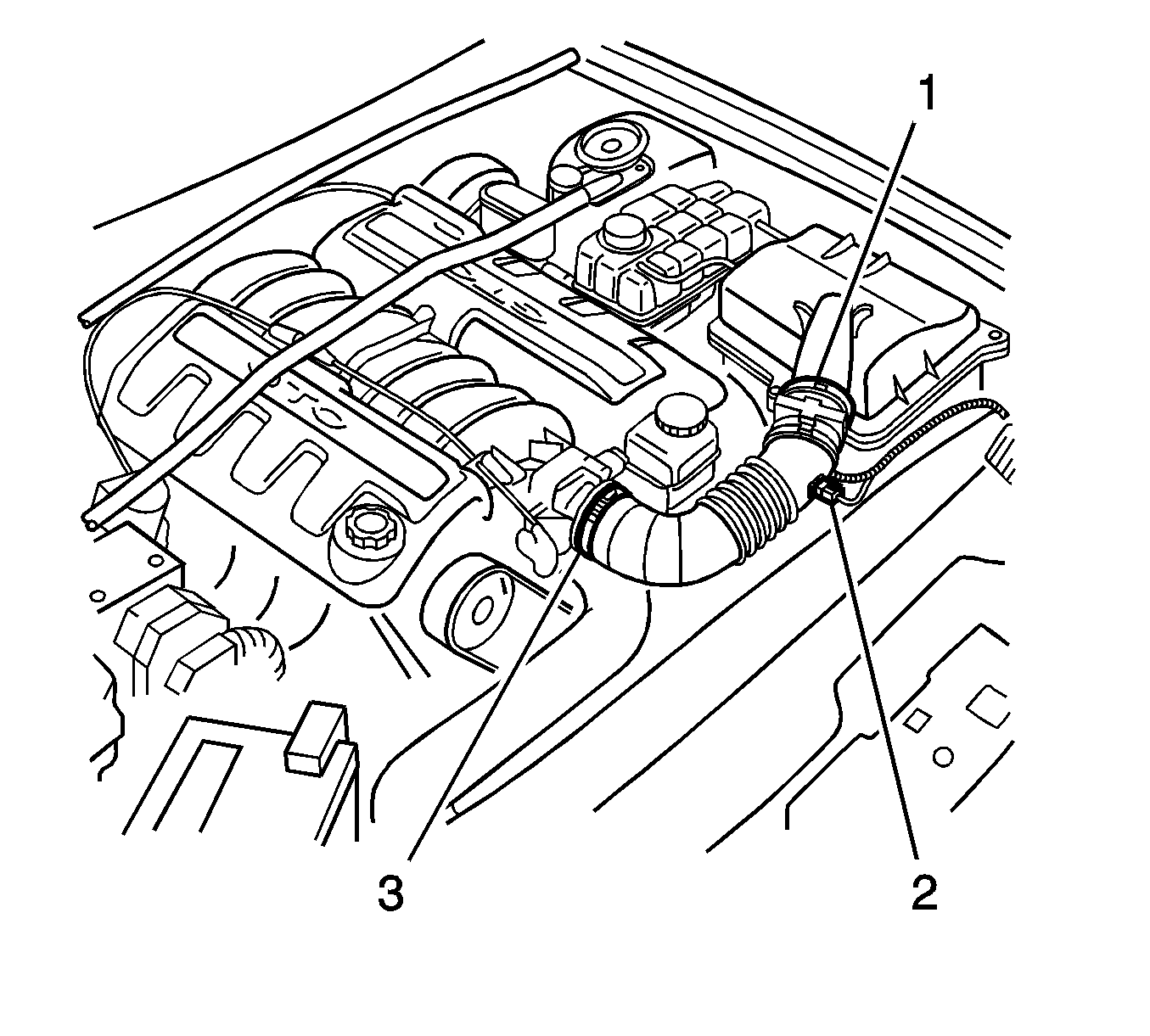
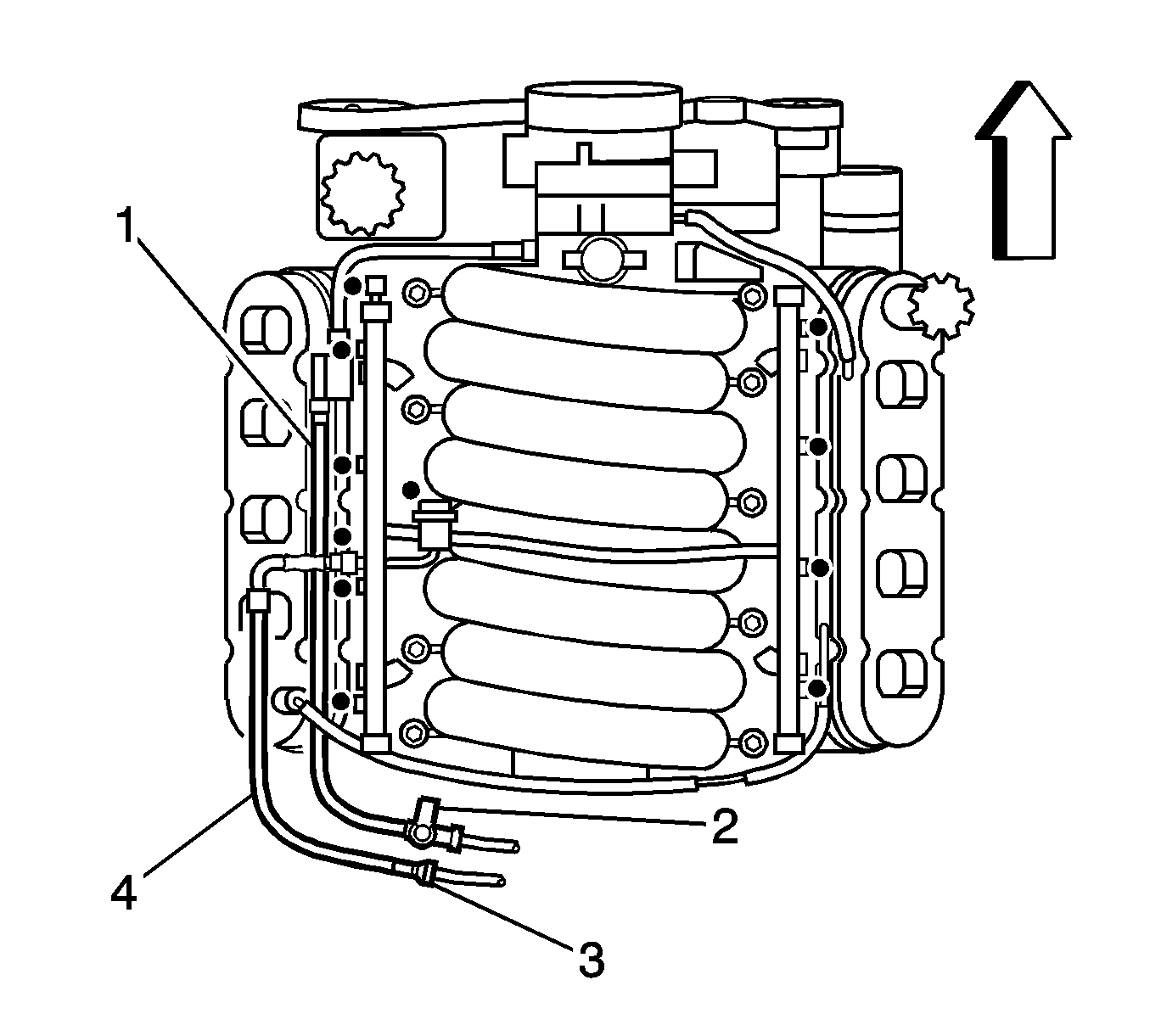
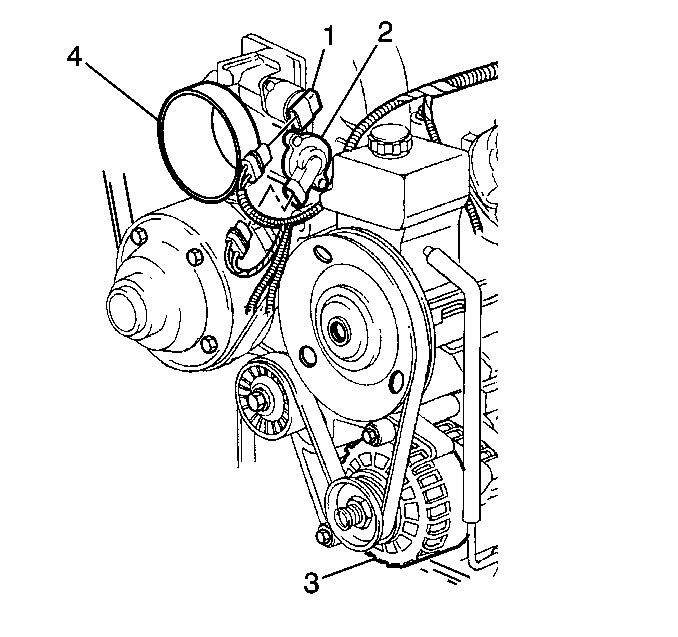
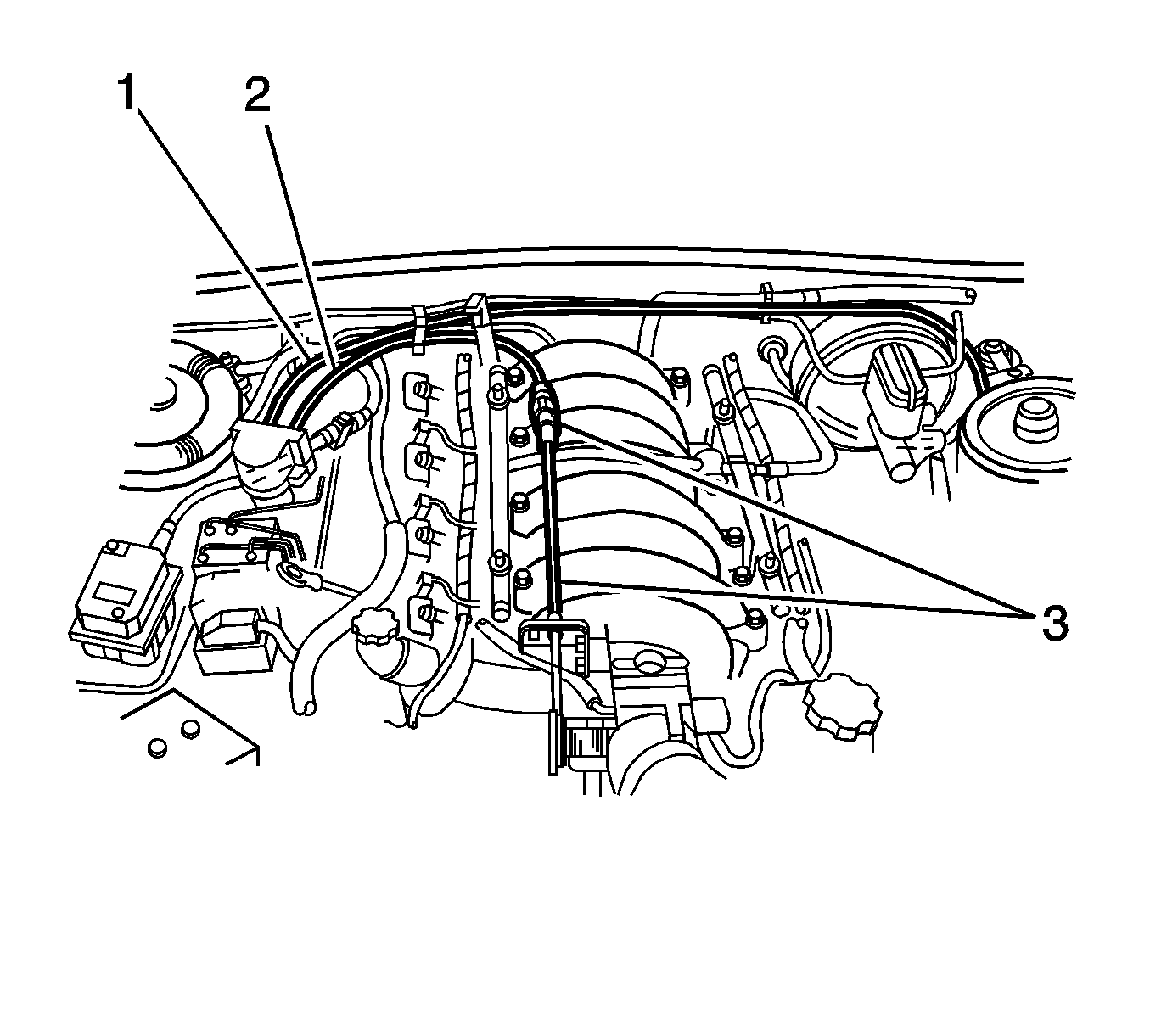
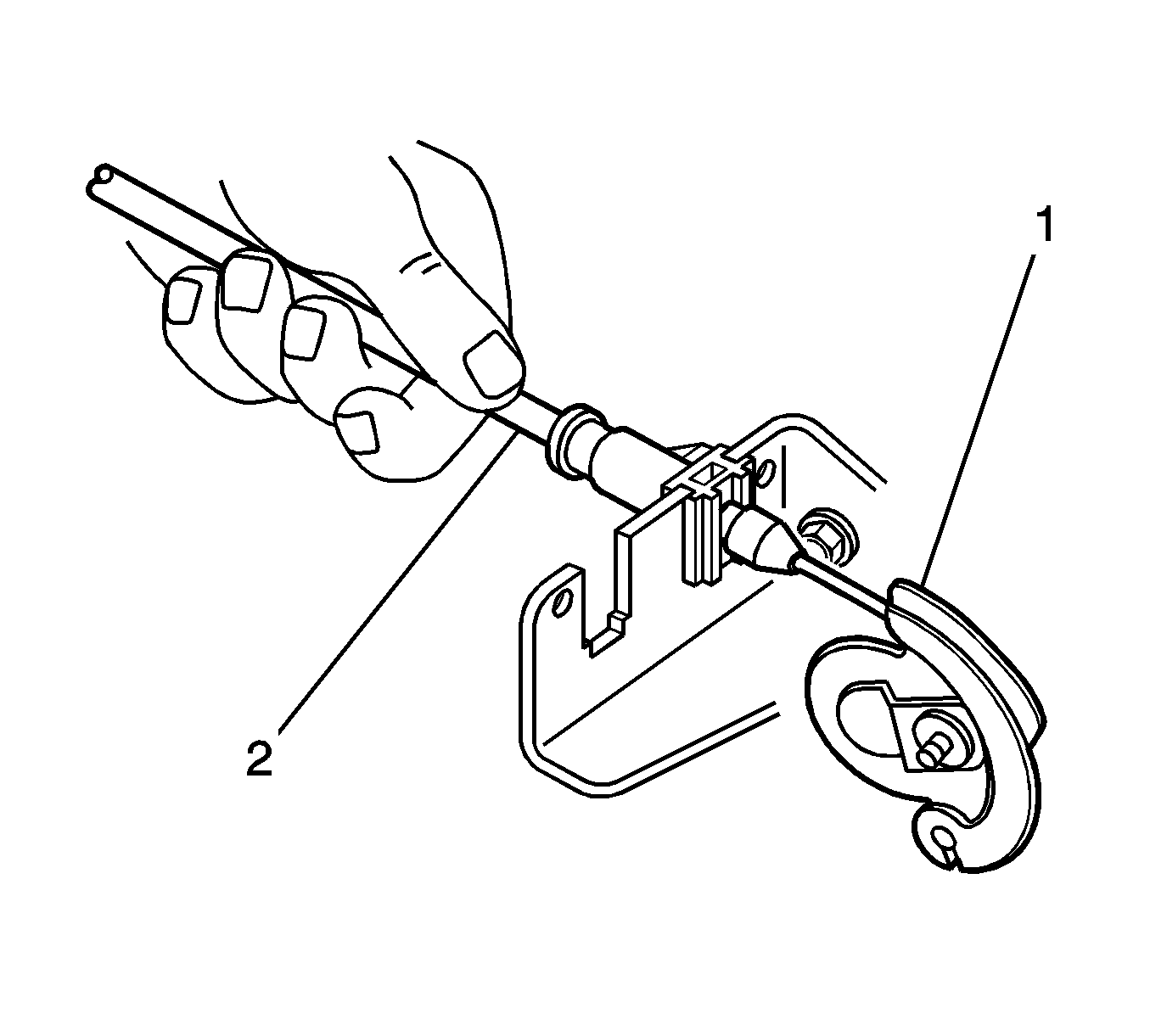
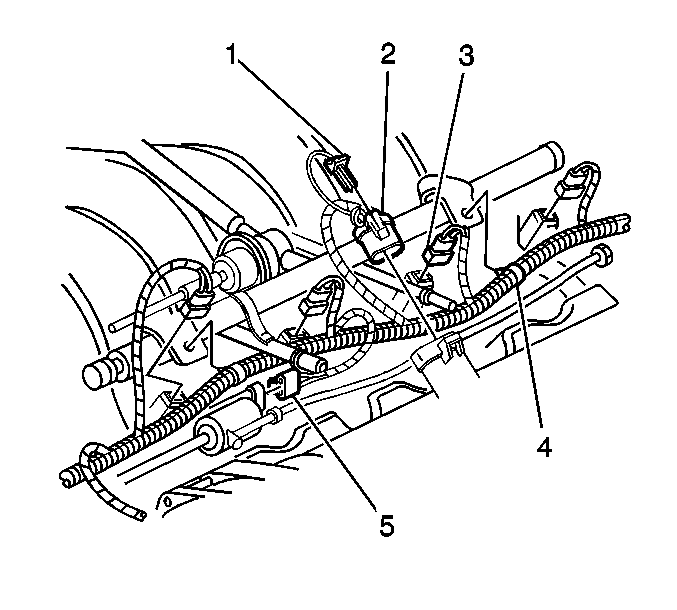
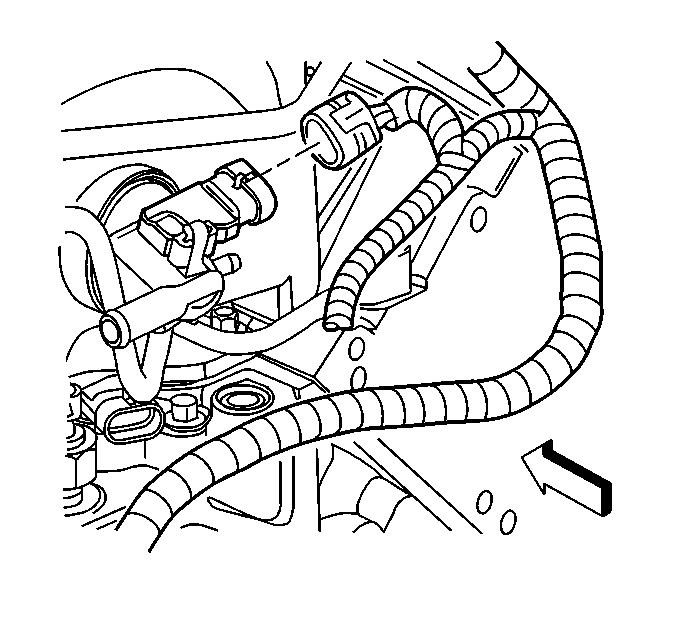
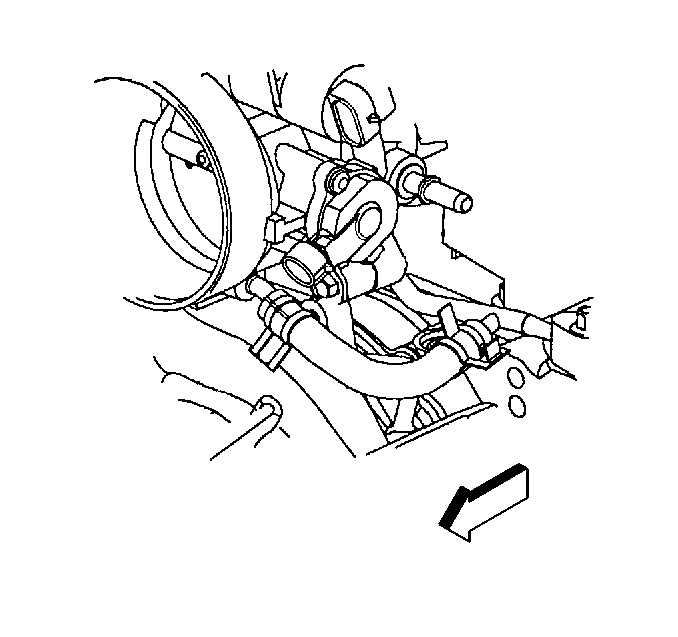
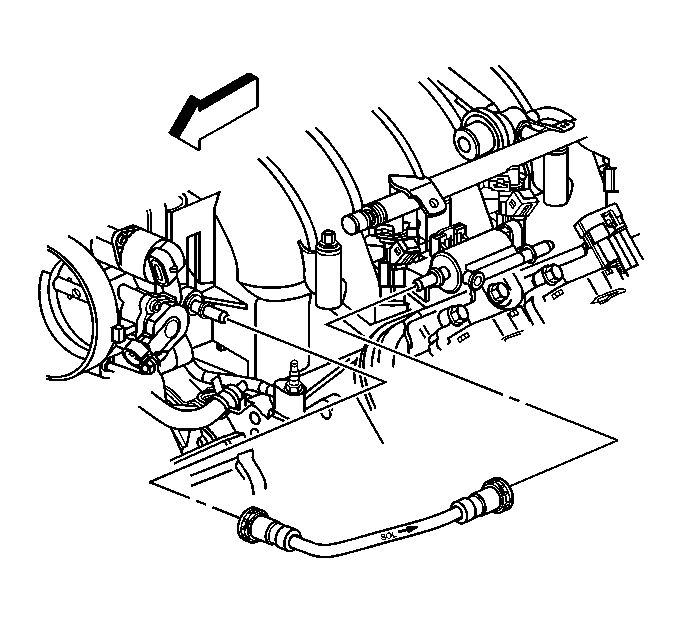
| • | Throttle body |
| • | EVAP canister purge solenoid valve |
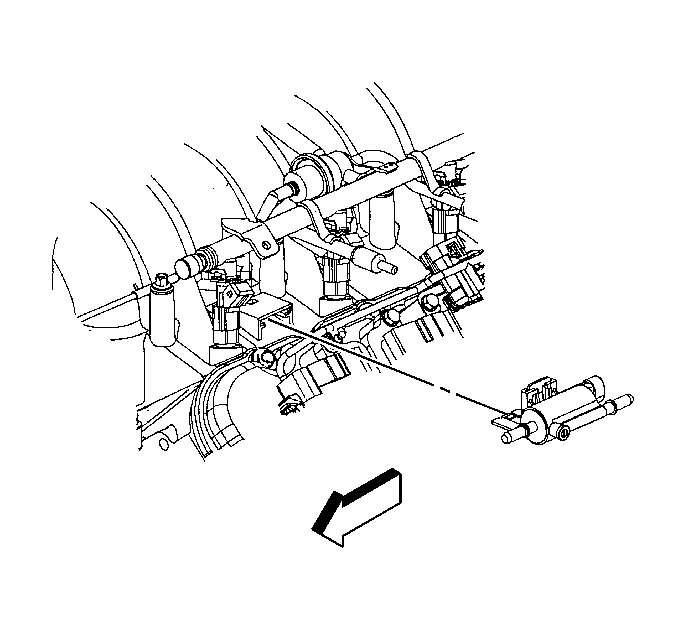
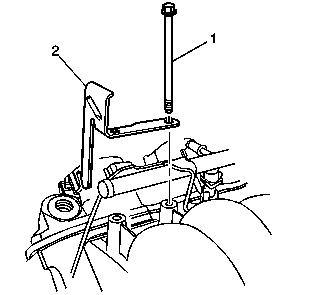
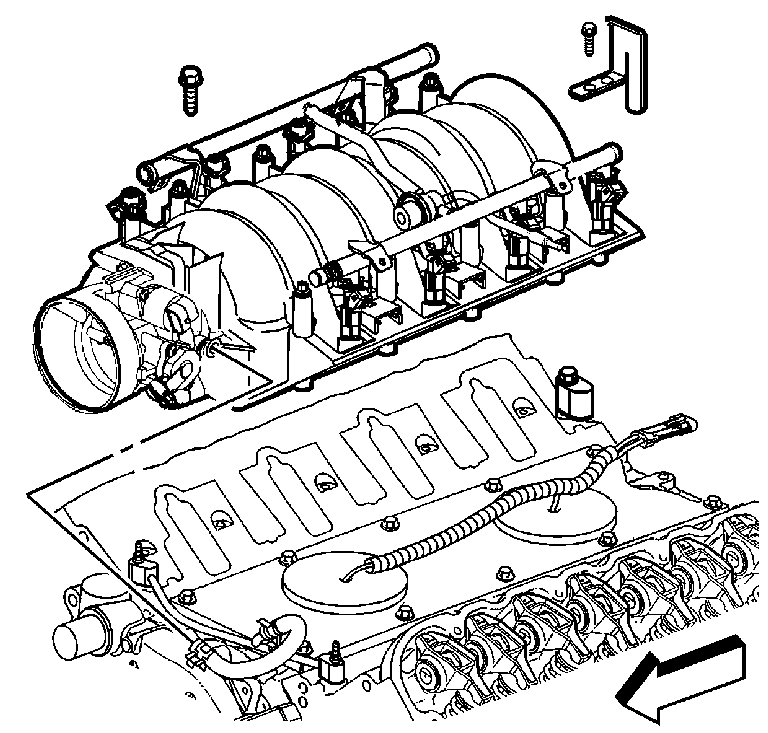
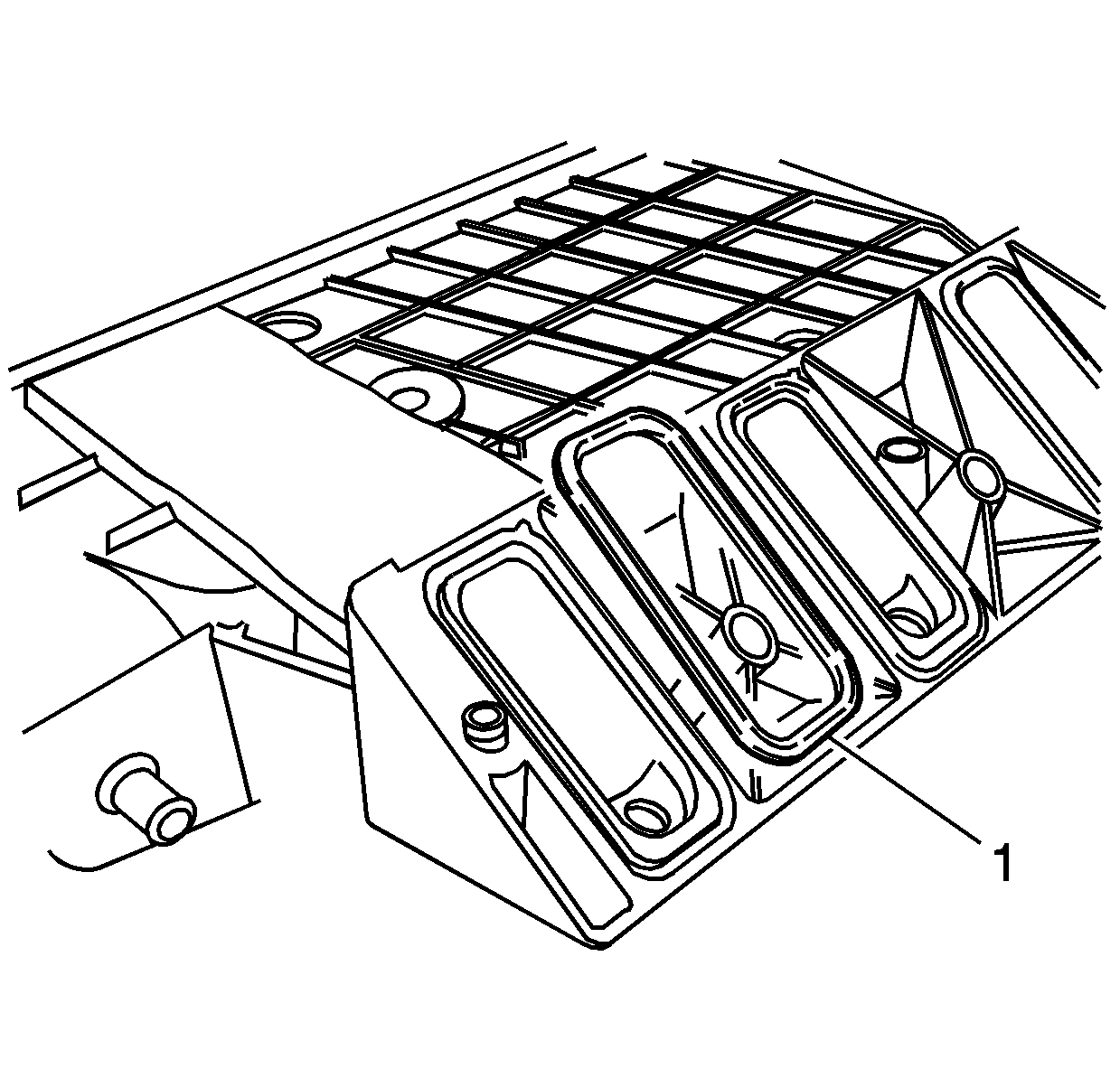
Installation Procedure
- Install NEW intake manifold-to-cylinder head gaskets (1).
- Install the intake manifold to the engine.
- Apply threadlock GM P/N 12345382, (Canadian P/N 10953489), or equivalent to the threads of the intake manifold bolts (1).
- Install the fuel rail stop bracket (2).
- Install the intake manifold bolts.
- Tighten the intake manifold bolts a first pass in sequence to 5 N·m (44 lb in).
- Tighten the intake manifold bolts a final pass in sequence to 10 N·m (89 lb in).
- Install the EVAP canister purge solenoid valve and bracket to the intake manifold.
- Install the EVAP canister purge tube to the following:
- Install the engine coolant vent hose to the throttle body and vent pipe.
- Install the coolant vent outlet hose to the throttle body and left-hand radiator tank.
- Install the fresh air hose to the rocker cover and the throttle body.
- Install the foul air hose to the throttle body and restricting orifice external connector.
- Connect the manifold absolute pressure (MAP) sensor connector.
- Connect the knock sensor connector.
- Connect the oil pressure sensor connector.
- Connect the fuel injector connectors (3) to all the fuel injectors.
- Install the locks (1) to the right and left side ignition coil main connectors and connect the connectors (2).
- Connect the EVAP canister purge solenoid valve electrical connector (5).
- Install the harness securing clips (4) to the fuel rail brackets.
- Install the cable to the throttle body cam lever (1) then install the throttle cable (2) to the throttle body mounting bracket.
- Install the cable (3) to the retaining clip.
- Connect the connector to the intake air control (IAC) motor (1).
- Connect the connector to the throttle position (TP) sensor (2) at the throttle body.
- Connect the fuel line (4) to the fuel rail.
- Connect the purge line (1) to the purge valve.
- Install the intake duct to the vehicle.
- Secure the intake duct with the hose clamps (1, 3).
- Connect the air intake sensor connector (2) to the air intake sensor.
- Install the fuel rail covers.
- Install the front suspension support brace. Refer to Front Suspension Support Brace Replacement in Front Suspension.
- Fill the cooling system. Refer to Cooling System Draining and Filling in Engine Cooling.
- Connect the negative battery cable to the battery. Refer to Battery Negative Cable Disconnection and Connection in Engine Electrical.



Caution: The fuel rail stop bracket must be installed onto the engine assembly. The stop bracket serves as a protective shield for the fuel rail in the event of a vehicle frontal crash. If the fuel rail stop bracket is not installed and the vehicle is involved in a frontal crash, fuel could be sprayed possibly causing a fire and personal injury from burns.
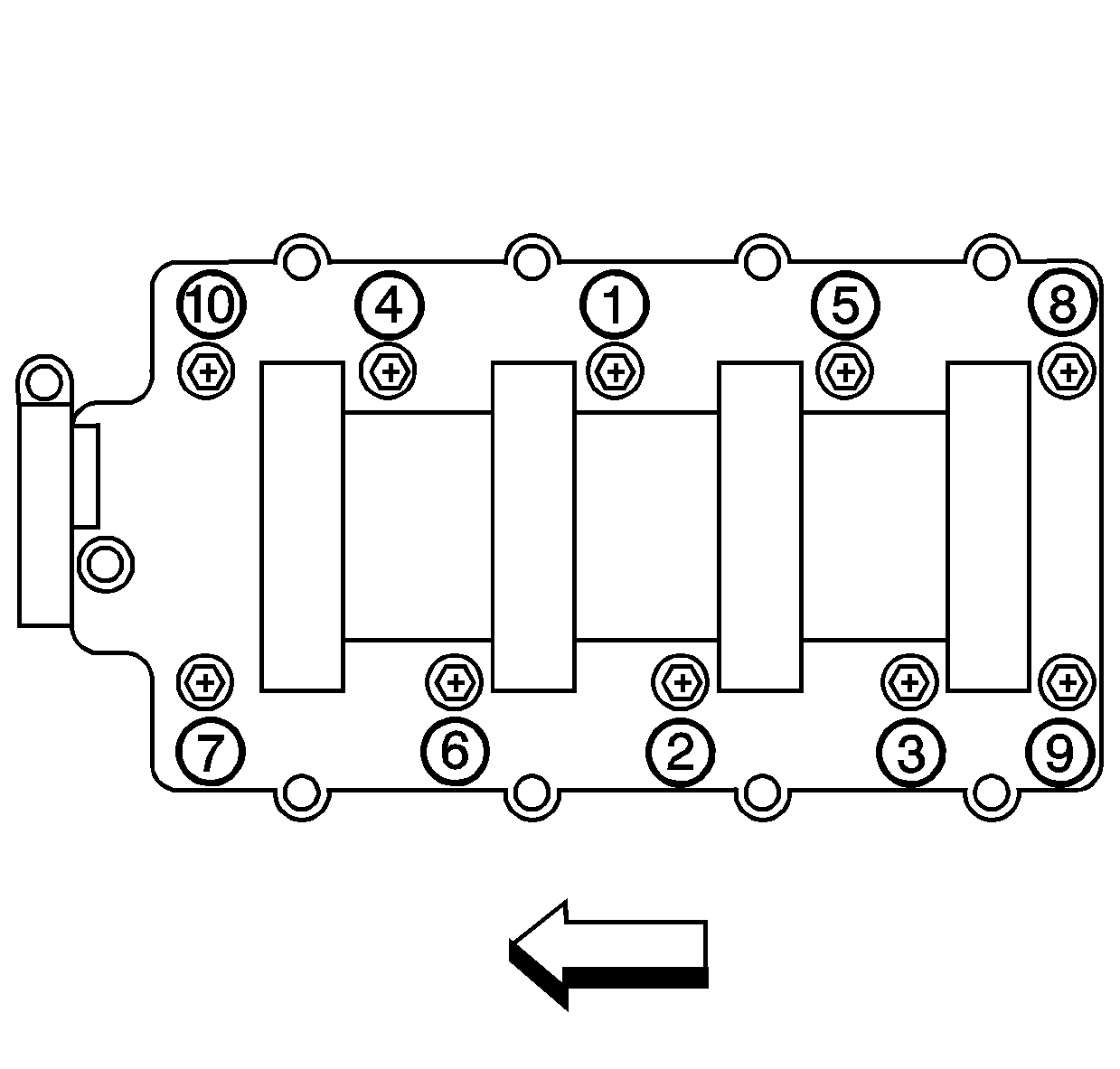
Notice: Use the correct fastener in the correct location. Replacement fasteners must be the correct part number for that application. Fasteners requiring replacement or fasteners requiring the use of thread locking compound or sealant are identified in the service procedure. Do not use paints, lubricants, or corrosion inhibitors on fasteners or fastener joint surfaces unless specified. These coatings affect fastener torque and joint clamping force and may damage the fastener. Use the correct tightening sequence and specifications when installing fasteners in order to avoid damage to parts and systems.
Tighten


| • | Throttle body |
| • | EVAP canister purge solenoid valve |








